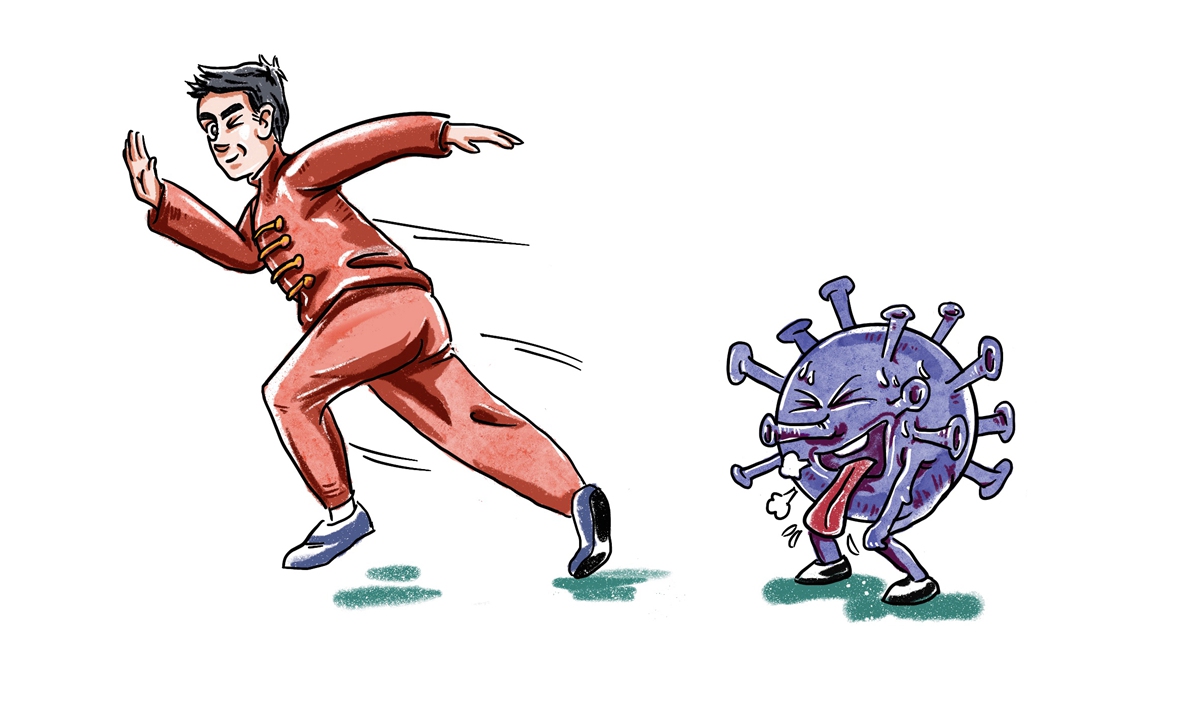Beijing’s new infections uptick won’t derail economic recovery
By Lian Ping Source:Global Times Published: 2020/6/18 20:54:26

Illustration: Tang Tengfei/GT
A second wave of COVID-19 infections in Beijing has raised concerns about China's economic growth, which has just started gaining momentum. After the city Tuesday announced an upgrade of its virus prevention and control measures to level II, hundreds of flights to and from Beijing are canceled now.
However, unlike the city's initial outbreak at the beginning of the year, control measures imposed swiftly to stifle the cluster contagion, mean the spread is likely to be contained and will not produce profound negative effect on economic recovery.
By Thursday, Beijing had reported 158 new cases, all connected to the city's largest Xinfadi whole food market. The market was cordoned off Saturday, with all market personnel now placed under quarantine and required to take nucleic acid tests.
Compared to the outbreak in Wuhan, Central China's Hubei Province, the new infections in Beijing occurred when the nation has already developed a comprehensive and effective prevention and control system following months of arduous efforts. The city has adopted a precise prevention strategy, putting related communities under lockdown while launching large-scale testing.
As it is critical to contain the virus from an early stage, the spread of COVID-19 in Beijing will be much weaker than it was in Wuhan, so the impact on the economy will be short-lived. In the short run, the economic impact will be strictly limited to Beijing.
According to recent data from China's National Bureau of Statistics, economic growth in May maintained it recovering trajectory and was within broader expectations.
Given that there are only two weeks left of the second quarter, the new outbreak in Beijing will not have much impact on the GDP growth for the quarter. Moreover, investment and industrial manufacturing across the country have seen little impact from the infection cluster in Beijing, and economic recovery outside the city has not been shortcut.
For now, the major impact will be on retail consumption and service sector within the city. Economically speaking, consumption has not fully recovered to last year's standard. Though the new outbreak will prolong the recovery time, they will not cause an obvious economic slump.
China, after months of all-out efforts to contain the COVID-19, has set a clear tone for counter-cyclical adjustments to bring back economic growth momentum, including active fiscal and monetary policies. This will not change due to the latest outbreak in Beijing.
If the downward economic pressure continues to mount in the second half of the year, or the overseas pandemic spread worsens, it is highly possible that China will roll out even stronger policies to facilitate economic revival.
For instance, China has set a yearly fiscal deficit rate of over 3.6 percent to its annual GDP, maintaining the space to issue new special bonds if needed.
As the pandemic continues to grow across the world, COVID-19 prevention has become the new normal. China, compared to other countries and regions, possesses the advantages in quickly reaching a clear and unified target, as well as effectively implementing measures to contain the virus spread and to accelerate economic growth.
For Beijing city, it is true that the recent outbreak will prolong its regional economic recovery, restricting catering, tourism, education and service sectors. It will take some time for the people to regain confidence to rejuvenate businesses in the city, as well as in the country.
The author is head of Zhixin Investment Research Institute. bizopinion@globaltimes.com.cn
Posted in: EXPERT ASSESSMENT,FEATURE